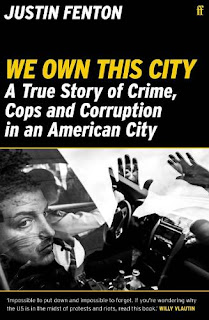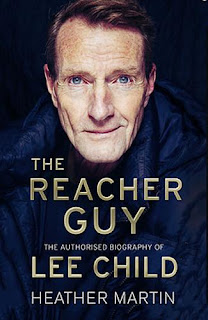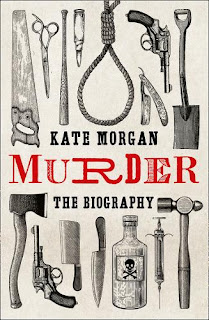It was a real scandal that inspired Line of Duty, the BBC’s most watched drama series this century.
Creator and writer Jed Mercurio said the incident that sparked his series was the Met's inadvertent shooting of an innocent man and their dishonesty in it's aftermath. Mercurio was referring to the 2005 shooting by police of Jean Charles de Menezes at Stockwell tube station in London. De Menezes, a 27-year-old Brazilian electrician, had been mistaken for a suicide bomber. Afterwards, the police said he had refused to obey instructions when challenged, which was later found to be not true.
This tragedy is reimagined in the opening moments of the first episode of Line of Duty. Officer Steve Arnott, pre-AC-12, is a member of a armed anti-terrorist team raiding the home of a supposed jihadist bomb-maker. The problem is that the man Karim Ali, has been misidentified. He is not a terrorist but is nevertheless shot dead. Chief Inspector Philip Osborne then orders Arnott's team to concot false statements to suggest the man acted aggressively when asked to surrender.
This revealed Mercurio’s intention in writing his series focusing on corruption, because as he explained to The Guardian before the first episode was broadcast in 2012 “I appreciate the value of escapism, but there must also be a platform for television fiction to examine our institutions in a more forensic light.”
So, the unifying idea was set from Line of Duty’s opening sequence – this was escapisim entertaintment that resonated to corruption scandals and police wrongdoing in the real world. Along with the plot twists and car chases. Line of Duty's storylines are permeated with the most shocking police scandals of recent times.
I rewatched the whole six series and replayed many scenes when writing The Real Ted Hastings. Again and again the real-world parallels appear.
Notorious investigations referenced during the series have included the murders of teenage student Stephen Lawrence and private investigator Daniel Morgan, Jimmy Saville's showbiz career built on sexual abuse has featured several times.
Other parallels include the killing of Maltese investigative journalist Daphne Caruana Galizia with fictional character Gail Vella in Series 6, while the wrongful 16 year imprisonment of Stefan Kiszko for a 1975 murder he did not commit inspired the framing of Michael Farmer in the fourth series. There are many further true scandals loitering with intent in Line of Duty.
When it comes to a role model for Superintendent Ted Hastings, we have to go back to the 1970s to find a Met Commissioner who epitomised his strong-minded integrity. Robert Mark, later knighted, staked his reputation on confronting the culture of rampant corruption in Scotland Yard’s Criminal Investigation Department (CID). He is still remembered as the anti-corruption chief who shook up a complacent Scotland Yard and rooted out hundreds of crooked cops. It is no surprise he is often cited as the corruption buster who is the closet frame of refrence for Hastings.
There are differences between them. Mark was a Manchester man working in London, while Hastings is from Northern Ireland and based in an unidentified Midlands city. Their ranks are different – Mark was the Met Commissioner in charge of strategy, while Hasting is a superintendent directing investigations. Hastings is eventually suspected of being bent himself, while Mark never was.
The similarities, however, highlight a shared lineage. Both faced hostility and pariah status from fellow officers as they dug into allegations of criminality in their forces. Mark shook up the CID when he set up A10 to chase down dishonest detectives. Hastings, of course, heads its fictional counterpart, AC-12. Hastings is accused in Season 1 of being a zealot in his fervour to investigate fellow officers. Mark was similarly accused of being more interested in arresting policemen than criminals.
Jed Mercurio’s use of high-octane drama to explore a powerful subject that increasingly hits the headlines – police wrongdoing is in a long tradition of writers who have used real cases as inspiration for their fiction.
Agatha Christie worked the notorious kidnapping and killing of the toddler of aviator Charles Lindberg and his wife Anne, in 1932. A $50,000 ransom was demanded. This was handed over, but the little boy Charlie was found dead. He had probably died during the kidnaping two months earlier.
Christie followed the case and was affected by this shocking outcome. In Murder on the Orient Express she has the victim Mr Ratchett, revealed to be a gangster called Cassetti who had also kidnapped a child and allowed the family to believe it was alive while extorting a ransom. Cassetti is murdered in retribution.
Fiction writers often explore disturbing crimes to gain a glimmer of understanding into how they might have occurred. In 1843, Edgar Allan Poe’s psychological mystery The Tell Tale Heart echoed a contemporary murder that of elderly, wealthy, Joseph White in 1830 Salem, Massachusetts. The case fascinated observers at the time as a study of guilt and ruthless indifference to the victim.
Truman Capote's 1966 non-fiction novel in Cold Blood examined the murder of the Clutter family in Kansas seven years earlier. In her 1996 novel Alias Grace, Margaret Atwood explored the true story of Canadian girl Grace Marks, who with another household servant, James McDermott, was tried for murder in 1843 of her employer and his mistress.
Mass shootings, such as the one at Columbine High School in 1999, were reflected in Lionel Shriver's novel We Need to Talk About Kevin.
Reimagined as fiction, such shocking events can be deconstructed to posit some comprehension of the motivations and causes behind them. And, of course, they can be gripping entertainment.
Professor Heather Marquette who has spent more than 20 years researching corruption has said, “Watching Line of Duty is practically research. While I appreciate that not everything in the show is as it is in real life, it can help bring corruption research to life. It presents a vision of a police service in the UK under significant pressure. And it's not just the police. The whole justice system is fraying at the seams in Line of Duty. From prison wardens to the yawning incompetent duty solicitor who sits idly by while an innocent and vulnerable young man wallows in prison. Line of Duty suggest a system that can effectively fulfil its purpose and risks losing public trust. This is why the work of AC-12 iw wo important. It's about public trust on the law'.
Some political commentators even cite Line of Duty as a bell weather of the state of contemporary. Britain, with its Party-gate, Wallpaper-gate, lobbying, sexual misconduct, PPE procurement and other scandals. 'The British state is like Line of Duty, but without no AC-12 ”said journalist Paul Mason”.
“While nobody in their right mind thinks Line of Duty is real, its metaphoric truth is: when dealing with commercialised and fragmented British state, you have to assume that everybody is on the make, everyone is gaming the system, everyone has something to hide, and that behind every investigation there is a cover-up”.
As the show’s millions of fans wait and hope for news of a seventh series, there is no mystery about what is holding up the announcement. Jed Mercurio probably can’t decide which of the many current police scandals to include in it.
The Real Ted Hastings: The True Story of the Cooper at the Heart of Line of Duty by Robin Jarossi (Ad Lib Publishers Ltd) Out Now
Line of Duty holds its status as the defining TV crime drama of today. The conspiracy theme of the series chimes at a time when public institutions and representatives are distrusted. Ted Hastings, the show's head of anti-corruption, has emerged as the beating heart of the series. This book reveals how the compelling drama reflects real crimes, events and figures, most notably that of Robert Mark and his battle against Met corruption. 'None of my people would plant evidence. They know I would throw the book at them... followed by the bookshelf' Starting with a bang - 'I'll put you all back in uniform' were his first words to his team. New Met Commissioner Robert Mark - the inspiration for Ted Hastings - took on his entire corruption-riddled detective branch in his first brutal speech. The scale of the problem facing Robert Mark was institutionalised corruption in CID. During his four years eleven months as commissioner, he saw 478 men leave the force following or in anticipation of criminal/disciplinary proceedings. Departures in the previous decade had averaged about 16 a year. Mark's extraordinary career established the need for a dedicated team to investigate corruption that lives on today.

%20One%20Digital%20Eye%20Photography.jpg)

























